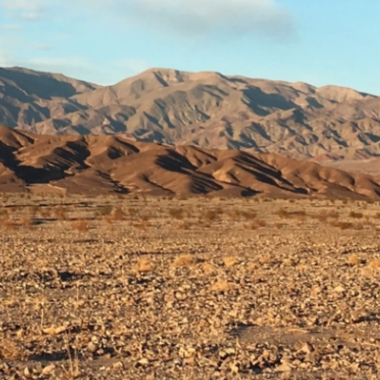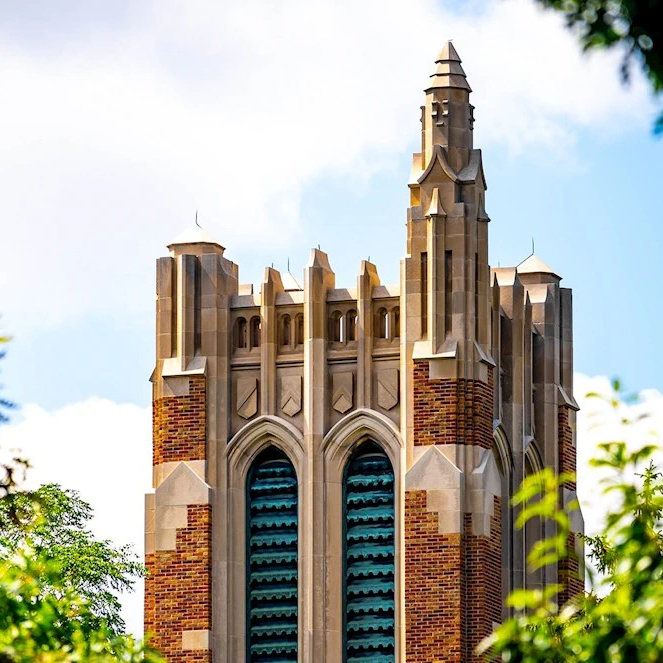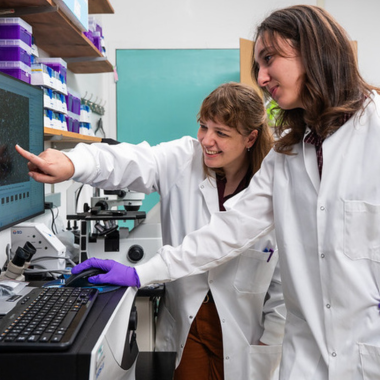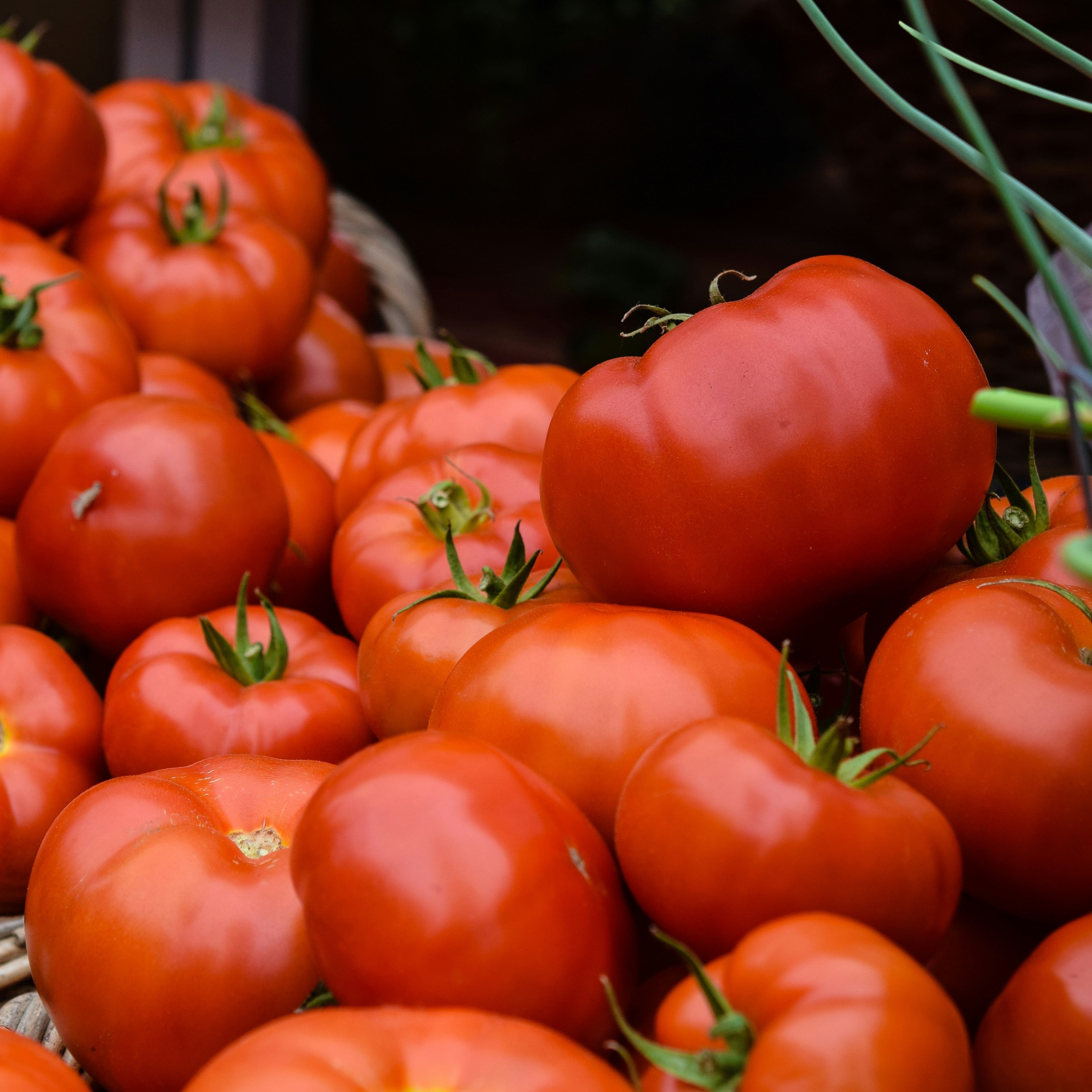BMB Spotlight: Chinedum Udekwu
Chinedum Udekwu is a familiar face in the halls of BMB, conducting cutting-edge cancer research in lab of department chair Olorunseun Ogunwobi. This year, you'll also find him representing the biochemistry community at MSU's Council of Graduate Students.
As campus comes alive for fall semester, we sat down with Udekwu for a Q&A to learn more about his work as a scientist, advocate, and mentor.
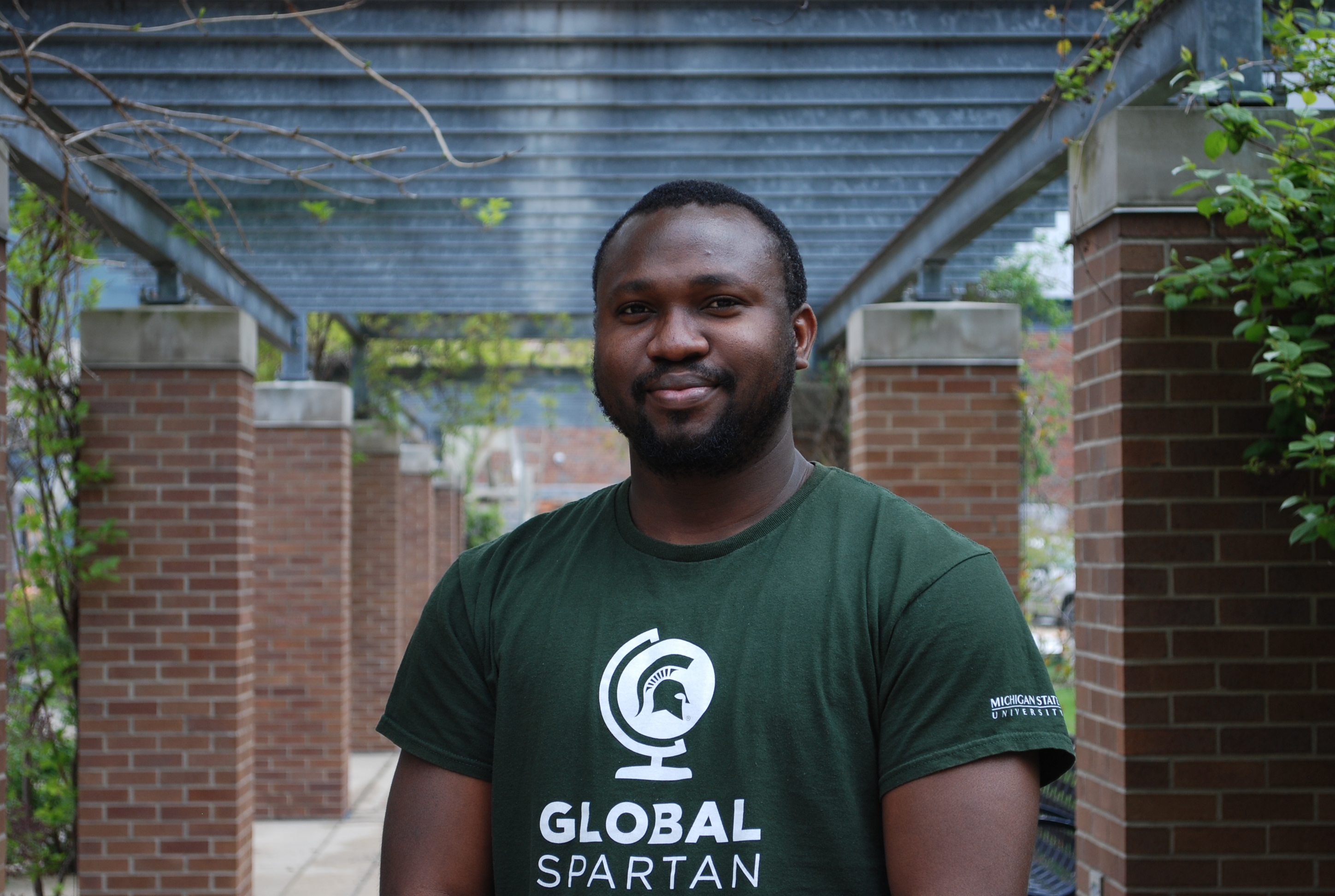
What inspired you to pursue a Ph.D. in biochemistry?
For me, it was and still is all about “impact.” I wanted to significantly contribute to the scientific community, especially in the area of cancer and one of the ways to do that was through a PhD. So I went for it!
Can you tell us a bit about your research, and the discoveries being made in the Ogunwobi Lab?
I’m currently working on the epigenetic regulation of an oncogene named- Plasmacytoma variant translocation one (PVT1). For starters, an oncogene is simply a mutated or overactive gene that drives the abnormal growth of cells (cancer). PVT1 is implicated in many cancers including that of the prostate. We and others have shown in previous studies that different portions of this gene play multifaceted roles in how they drive cancer progression. Additionally, we have observed that the regulation of this gene appears to be more than meets the eye. So my goal is to unravel the upstream mechanisms of PVT1 regulation as a means to an improved therapeutic and/or prognostic end.
For those unfamiliar, what role does the Council of Graduate Students play here at MSU?
Well, I will start by saying that COGS is an intricate aspect of university administration. At MSU, it serves as the official representative body for all graduate and professional students, advocating on their behalf to university administration, faculty, and staff on issues such as tuition, stipends, healthcare, housing, and research resources. COGS administers grants and funding for student research, travel, and professional development, organizes social and academic events, and provides networking opportunities across disciplines. It also serves as a platform for graduate students to share concerns through surveys and forums, ensuring their perspectives are included in university-wide decision-making. Through departmental representatives and liaisons, COGS ensures that every graduate student’s voice is heard in shaping policies, programs, and initiatives that impact their academic and professional experience
What motivated you to join student government? Do you see connections between your role as a scientist and that of a student advocate?
Wherever I am, I always try to seek out ways to serve and create a good and memorable impacts in the hearts of the people I serve. So, I saw the COGs rep role as a good opportunity to do just that. Besides, I have always served (either appointed or elected) as a student representative right from high school, to bachelors, and masters. The role keeps chasing me wherever I go and I have now come to embrace it.
As per the connection between my role as a scientist and that of a student advocate? I believe that most of the science we do in the lab would have no use or come to fruition if we (the scientists) never advocated for funding or made efforts to bridge the communication gap between the government and scientists. So being a student advocate will continue to sharpen my advocacy and leadership skills which could come handy if and when the opportunity to serve in an administrative position presents itself.
What do you hope to contribute to the MSU graduate community by representing BMB?
I look forward to communicating more frequently with BMB graduate students on a collective and/or one-on-one basis about the content of COGs discussions, university policies, and relevant opportunities. Also, I will be actively seeking for ways to foster interconnectedness between BMB graduate students through social and career events.
Do you have any advice for incoming graduate students?
I will keep this simple. First year in graduate school is usually daunting, especially with the imposter syndrome and sugar rush of activities, but you need to understand that you were selected from a pool of highly qualified candidates and that means there’s something special about you. Whether or not you figure it out in your first, second, third or final year of your PhD, what matters most is that you never lose track of the wins, no matter how little because they can serve as energy boosters to help you get to the finish line.
Outside of your work in the lab and now student government, do you have any favorite hobbies or passions?
For hobbies, I enjoy science as much as I enjoy sports too and I’ve always said that if I was born and raised in America, I probably would have been a professional athlete or pursued a career in soccer coaching. Notwithstanding, in my free time, I play any of the following; badminton, table tennis, lawn tennis, soccer, volleyball, and handball. I also enjoy playing chess and FIFA video game.
I am very passionate about scholarships, when I am not working, you’ll find me mentoring an undergraduate student on how to win scholarships for graduate studies. All my life’s education have been funded by scholarships, either from family, private or government organizations when I clearly couldn’t afford to pay myself through school. So I believe every brilliant but indigent student who sincerely wants to make global impact via education, should not be limited by funds. Therefore, I hope to establish a charity organization to meet this need in the future.
